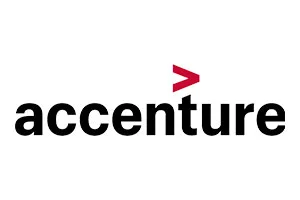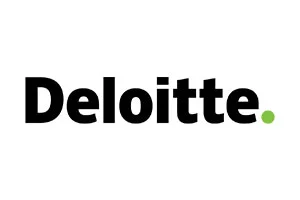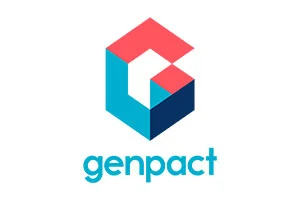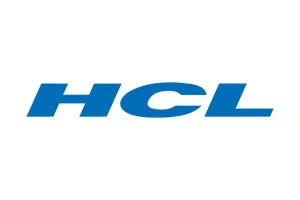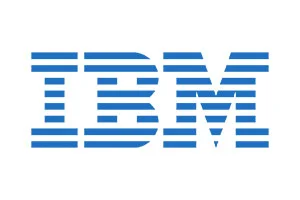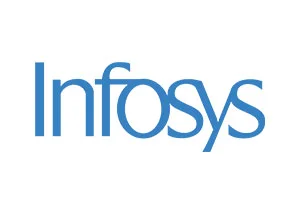Program Overview
Learning Hours
Module
Projects
Interview Calls
Certification Course in Digital Banking and Data Analytics aims to provide participants with a solid foundation in Digital Banking and Data Analytics concepts, along with practical skills and experience and apply these technologies in real-world scenarios. By providing a comprehensive overview of Digital Banking and Data Analytics concepts, along with practical hands-on experience and real-world case studies, this program equips participants with the knowledge and skills needed to excel in data-driven environments and leverage IoT technologies effectively.
Program Overview
case studies
Learning Outcomes
- Designing Innovative Digital Banking Solutions: Participants will learn to create cutting-edge digital banking products and services tailored to customer needs.
- Data-Driven Financial Insights: Participants will acquire skills in collecting, analyzing, and interpreting financial data to drive strategic decision-making.
- Optimizing Banking Operations with Analytics: Participants will explore methods for enhancing operational efficiency and customer engagement using advanced analytics tools.
Note:
Modules/ topics are indicative only, and the suggested time and sequence may be dropped/ modified/ adapted to fit the total programme hours. Case studies, real world examples and numerical illustrations are an integral part of multiple modules included in the course.
The primary mode of learning for this programme is vialive online sessions with faculty members.
Post session video recordings may or may not be made available, at the discretion of faculty members.
Emeritus or the institute does not guarantee availability of any session recordings.
Who is this Programme for?
This programme is best suited for:
- Early and mid-level Professionals interested in gaining a relevant and cutting-edge perspective on Digital Marketing Data Analytics for better career prospects
- Professionals who oversee software development and machine learning projects with a keen interest in developing a data-driven decision-making approach and those looking to apply Data Analytics and ML to enhance their business growth

Career Opportunities After Digital Banking and Data Analytics
Average Salaries
₹ 6L – ₹ 25L Per Annum
Hiring Companies
Program Modules
-
Module 1: Introduction to Digital Banking (8 hours)
1. Overview of Digital Banking
- Definition and evolution of digital banking
- Types of digital banking services (Online banking, mobile banking, digital wallets, etc.)
- Key technologies enabling digital banking (cloud computing, AI, blockchain, etc.)
- Benefits and challenges of digital banking
2. Global Digital Banking Trends
- Case studies from leaders in digital banking (e.g., Revolut, N26, Chime)
- The rise of challenger banks and fintech companies
- Digital transformation in traditional banks
-
Module 2: Digital Banking Infrastructure and Technologies (10 hours)
- Core Banking Systems
- Components of a digital banking infrastructure
- The role of APIs and microservices in digital banking
- Cloud computing and its impact on banking systems
- Emerging Technologies
- Artificial Intelligence (AI) and Machine Learning in banking
- Blockchain and its applications in banking (e.g., smart contracts, cross-border payments)
- Robotic Process Automation (RPA) in banking operations
- Security in Digital Banking
- Cybersecurity risks and protection strategies
- Fraud detection and prevention using AI and data analytics
- Regulatory and compliance considerations (e.g., GDPR, PSD2)
- Core Banking Systems
-
Module 3: Data Analytics Foundations (8 hours)
1. Introduction to Data Analytics
- Understanding data analytics and its importance
- Types of data analytics: Descriptive, diagnostic, predictive, and prescriptive
- Data collection methods and data sources in banking
2. Data Analytics Tools and Techniques
- Overview of tools like Python, R, SQL, and Excel for data analysis
- Basic statistical techniques (mean, median, standard deviation, correlation)
- Introduction to data visualization using Tableau, Power BI, or other tools
-
Module 4: Data Analytics in Banking (10 hours)
-
Customer Analytics
- Customer segmentation and profiling using data
- Personalizing customer experiences with data analytics
- Predictive modeling for customer behavior (e.g., churn prediction, credit scoring)
-
Risk and Fraud Analytics
- Detecting and preventing fraud with data-driven insights
- Risk assessment and management using data analytics (credit risk, market risk)
- Case study: Anti-money laundering (AML) and fraud detection systems
-
Operational Efficiency
- Using data analytics for process optimization in digital banking
- Predictive analytics for demand forecasting and resource allocation
- Enhancing customer service through chatbots and virtual assistants
-
Customer Analytics
-
Module 5: Data-Driven Decision Making in Banking (8 hours)
1. Data-Driven Strategic Decisions
- Leveraging data analytics for strategic decision-making (product development, marketing, etc.)
- Case studies on how banks use data analytics for competitive advantage
- Aligning business strategy with data insights
2. Key Performance Indicators (KPIs) and Metrics
- Identifying the right KPIs for digital banking operations
- Measuring customer satisfaction, retention, and lifetime value
- Analyzing operational efficiency metrics
-
Module 6: Advanced Data Analytics Techniques (8 hours)
3. Advanced Predictive Analytics and Machine Learning
- Introduction to machine learning algorithms for banking (e.g., regression, decision trees, neural networks)
- Building credit scoring models using machine learning
- Case study: Loan approval and risk prediction models
3. Big Data and Real-Time Analytics
- Managing and analyzing big data in a digital banking environment
- Real-time data analytics for fraud prevention and customer behavior monitoring
- Using data lakes and data warehouses for advanced analytics
-
Module 7: Regulatory Environment and Compliance in Digital Banking (4 hours)
-
Regulatory Frameworks
- Key regulations impacting digital banking and data analytics (e.g., PSD2, GDPR, Basel III)
- Understanding data privacy laws and their implications for data collection and usage
- Compliance challenges in cross-border digital banking operations
-
Data Ethics and Responsible Banking
- Ethical considerations in data usage
- The role of transparency and accountability in digital banking
- Ensuring fair lending practices through data-driven insights
-
Regulatory Frameworks
-
Module 8: Future of Digital Banking and Data Analytics (4 hours)
- Emerging Trends in Digital Banking
- The rise of open banking and APIs
- Digital currencies and central bank digital currencies (CBDCs)
- The potential of quantum computing in banking
- The Role of Artificial Intelligence in the Future of Banking
- AI-driven innovations in digital banking services
- How AI will reshape customer service, credit risk assessment, and fraud detection
FAQ
-
Q-01 : What will I receive by completing this Course?
Ans-01 : It is a Certification Programme from IIT-Kharagpur. You will receive the Certificate of Completion. The link for the certificate image is available below: Sample Certificate
-
Q-02 : What is the program duration?
Ans-02 : It is a short term programme.
The Course Start Date – January, 2025
Program Duration – 6 months -
Q-03 : Will the classes be held in some specially designated centres in my City or will they be held Online?
Ans-03 : The Course will be delivered Live, Online direct to your Device, (ie. Laptop or Desktop, mobile etc which can be used to access the Internet). The details of the configuration will be available before course commencement.
-
Q-04 : Will the classes be held every day? I am a working professional.
Ans-04 : No, the Classes will be held as per schedule only over the weekends. The Class schedules will be published well in advance.
-
Q-05 : How will this Course help my Career?
Ans-05 : Successfully completing the Course will enable you to earn a Certificate from IIT Kharagpur. Since the classes will be held over the weekend, it will not disturb your normal professional work either.
-
Q-06 : Is the platform fee a one time payment?
Ans-06 : There are installment facilities available.
-
Q-07 : Do I have to give an exam to get admission in this Course.?
Ans-07 : No. The Institute has the right to take a final decision on your Application based on all the Documents submitted.
-
Q-08 : Who will teach us?
Ans-08 : A reputed Faculty of the Institute will be taking the classes. Apart from that, top Industry specialists will also teach specific topics and you will get Industry Expert’s perspective as well.
-
Q-09 : How will the Course Assessment take place?
Ans-09 :Assessments will be through assignments and projects.
Programme Coordinator
Sample Certificate
